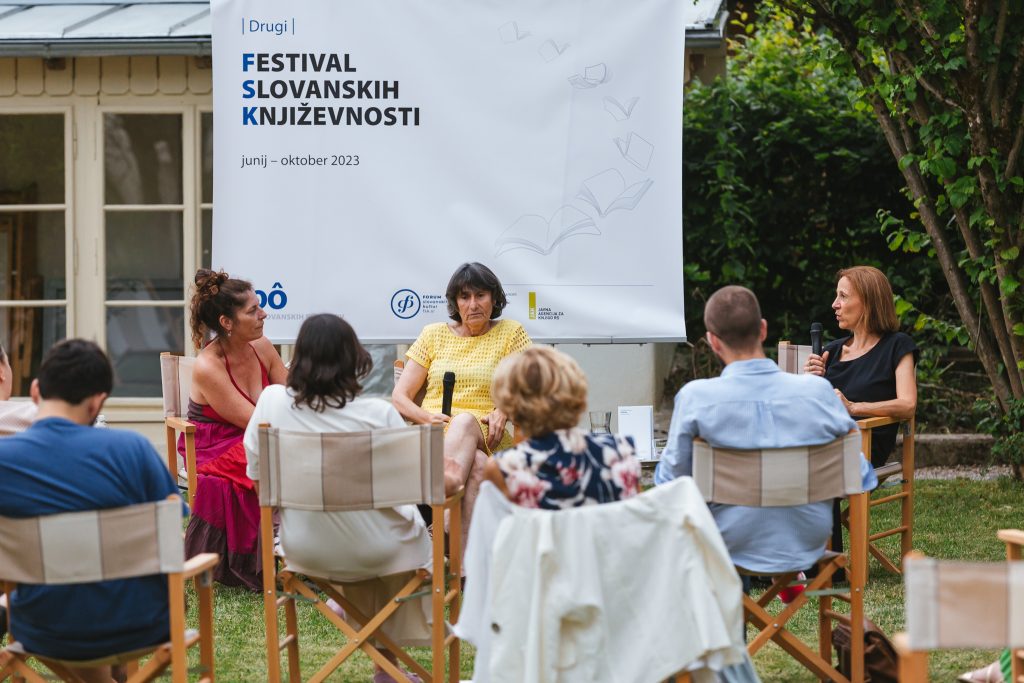The festival took place in the garden of Villa Zlatica and the Forum of Slavic Cultures. Both authors had their novels recently published in the Hundred Slavic Novels collection, with Slovenian translations of The Peeper and Thursday.
During the event, Evtimova and Prokopiev engaged in conversations about their writing process and delved into the themes of their translated novels. Translators Robert Suša and Eva Šprager, who respectively translated The Peeper from Macedonian and Thursday from Bulgarian into Slovenian, also participated in the discussions.
Aleksandar Prokopiev, a captivating Macedonian prose writer known for his preference for shorter genres, has garnered attention with his novel The Peeper, his sole novel to date. During a conversation with Namita Subiotto, an expert in Macedonian literature, professor of Southern Slavic studies, and translator who contributed the foreword to the novel, Prokopiev elaborated on his affinity for concise prose. Delighting the audience, he shared numerous incidents and anecdotes that may inspire his future works. The discussion also encompassed the translation of the book’s title, with the author expressing satisfaction in the Slovenian translation, The Peeper, and shedding light on how the title resonates in different languages, shaping the reading experience, comprehension, and reception of the text.
Evtimova’s Thursday became the first Bulgarian novel to be translated into Slovenian as part of the 100 Slavic Novels collection. With her extensive body of work, Evtimova holds a significant position in contemporary Bulgarian prose. Translator Eva Šprager expressed great satisfaction in translating the novel, emphasizing the pleasure she found in the process. Thursday follows the lives of five strong women during the tumultuous Bulgarian transition period. “My desire is, not only in this novel, to show the social layers of people’s lives in a certain community and in a certain period,” highlighted Evtimova. In a conversation with journalist and literary critic Tina Kozin, the Bulgarian writer shared her belief that writing is an inherent part of her existence, enabling her to live the lives of her characters spanning centuries. She described writing as a writer’s destiny, an intrinsic need similar to that of a smoker craving a cigarette or an addict requiring a drug. At times, this destiny brings happiness, while at other times, it does not.

